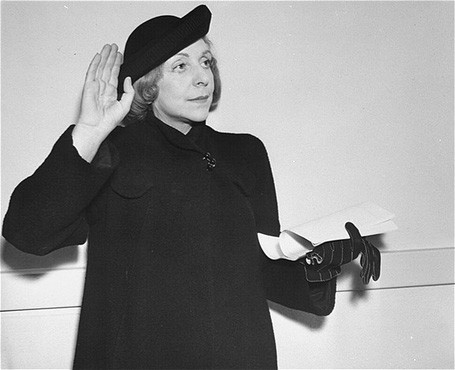
Vicki Baum
In 1933, Nazi students at more than 30 German universities pillaged libraries in search of books they considered to be "un-German." Beginning on May 10, 1933, Nazi-dominated student groups carried out public burnings of these books. Among the works burned were those of author Vicki Baum. Increasingly uncomfortable with rising fascism and antisemitism, Baum had left for the United States in 1932.
Excerpt
[The New Women] are healthy and happy, with no hysteria, no anemia, no nerves and sentimentalities. They are at home on the sports field and in the laboratories; they work a lot and do not make a lot of fuss over those emotions that meant so much to us in the old days because they proliferated half-hidden, suppressed and forbidden.
—Vicki Baum, 1929
Which of Vicki Baum's Works were Burned?
All works published before May 1933
Who was Vicki Baum?
Vicki Baum (1888-1960), a best-selling author in Austria and Germany, was born into a middle-class Jewish family in Vienna. Her first novel was published in 1920. Her writings reflected the modernism characteristic of Weimar-era literature, and embraced the ideals of independence and liberation for women.
Increasingly uncomfortable with rising fascism and antisemitism, Baum left for the United States in 1932. She continued her successful career, including working on the acclaimed film Grand Hotel, based on her 1929 novel Menschen im Hotel. Her writing often depicts powerful, self-reliant women caught up in the social and economic turbulence of the twentieth century.
The Nazis forbade and burned works by Baum, who was both Jewish and an advocate for the modern woman.
Critical Thinking Questions
How did the German public react to the book burnings? What were some of the reactions outside of Germany?
Why do oppressive regimes promote or support censorship and book burning? How might this be a warning sign of mass atrocity?

